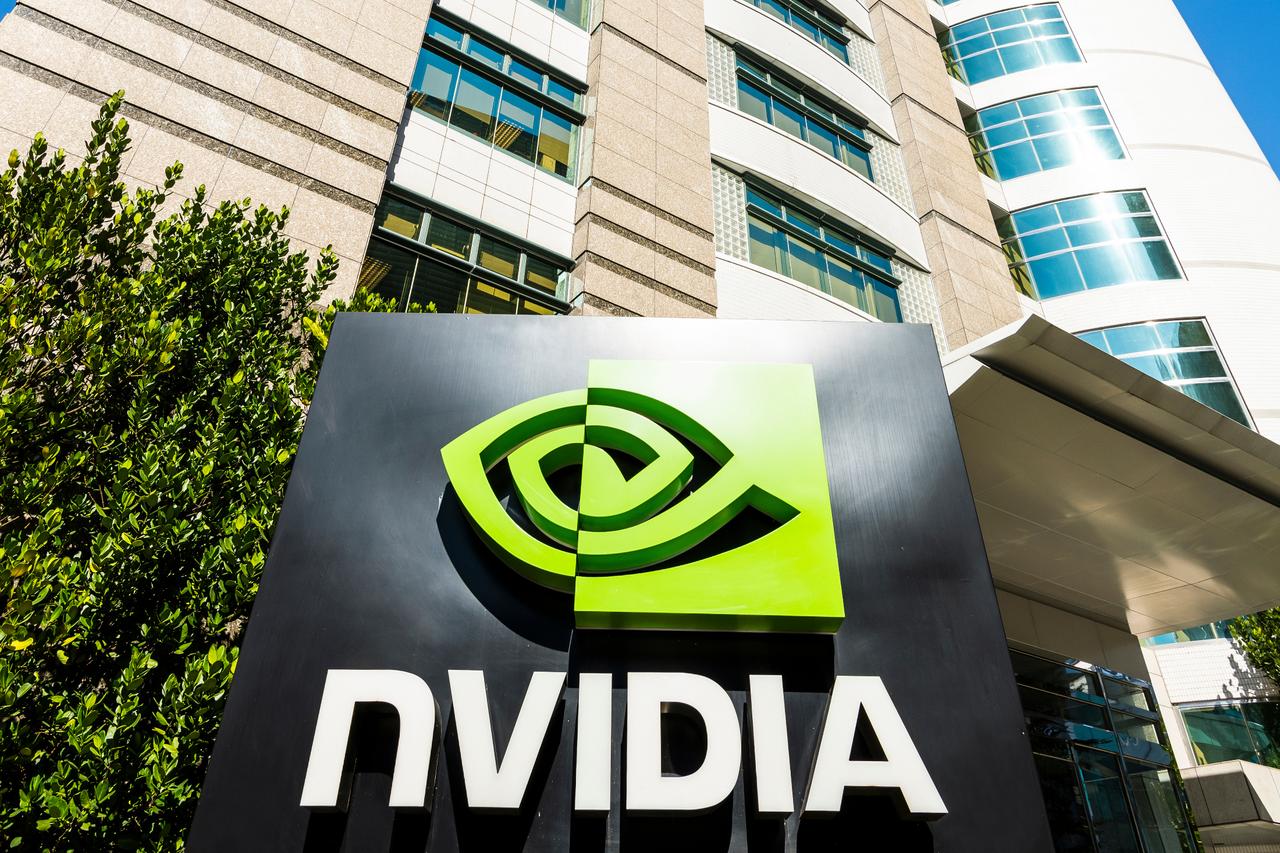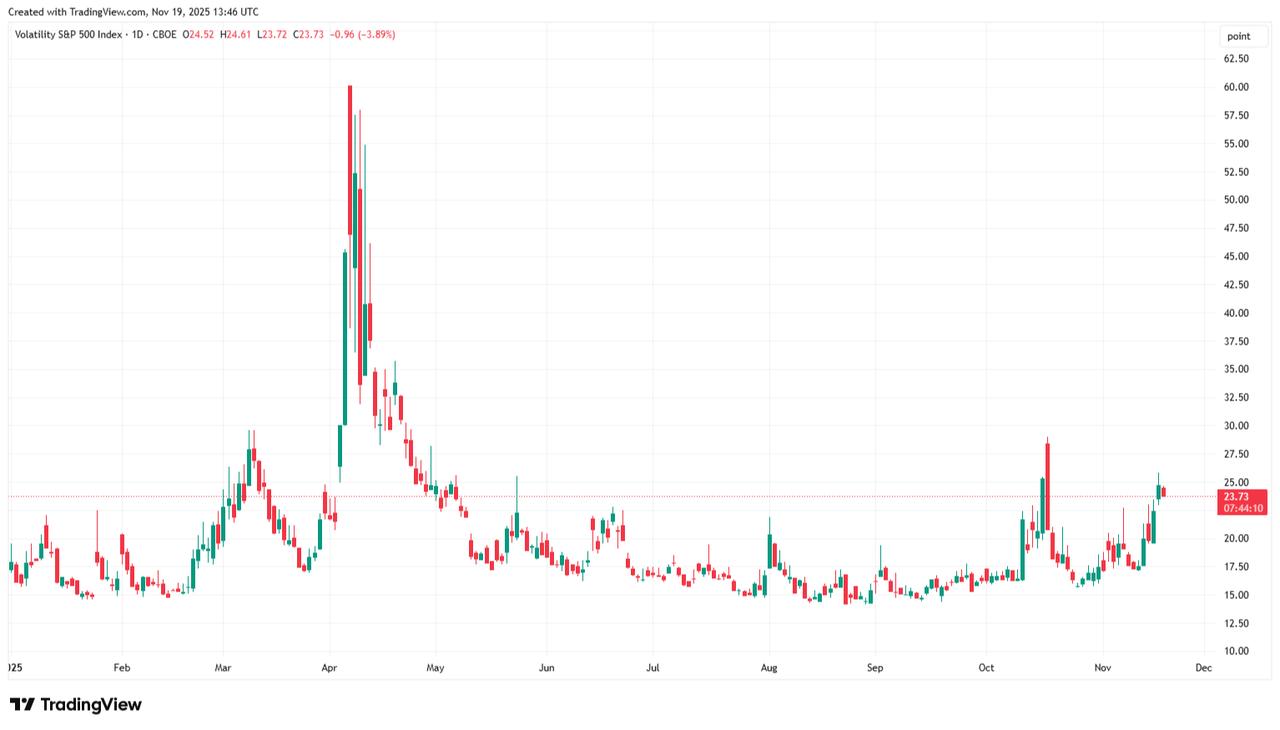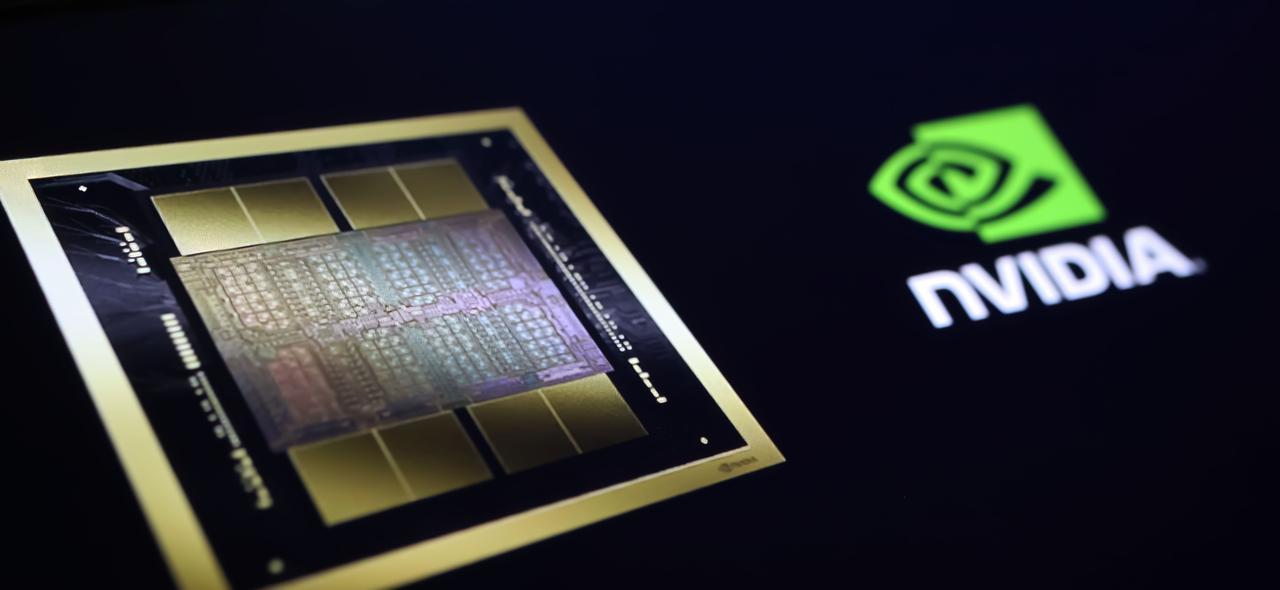
U.S. chipmaker Nvidia, the world’s largest company with a market capitalization of $4.6 trillion, is set to deliver its earnings for the third quarter of 2025 after Wednesday’s market close in what could mark a defining moment for the artificial intelligence (AI) investment wave, as rising fears of an AI bubble dampen risk appetite across global markets.
The chipmaker holds an 8% weighting in the benchmark S&P 500 index, making its performance pivotal to broader market sentiment in the United States. Its dominance in AI hardware, particularly graphics processing units (GPUs) used to train large language models, has placed the firm at the center of investor interest amid the ongoing tech rally.
Major global stocks have faltered over the past five sessions as investor caution builds over the pace and scale of AI-related capital expenditure. All three major Wall Street indices posted notable declines, with the broader S&P 500 down 3.6%, the Dow Jones Industrial Average falling over 4%, and the tech-heavy Nasdaq leading losses with a drop of nearly 5%.
European stocks also mirrored the downturn, with the U.K.’s FTSE 100 in London sliding 3.82%, Germany’s DAX dropping nearly 5% to 23,213.28, and France’s CAC 40 retreating by 3.7%. Markets in Asia reflected similar pressure, with Tokyo’s Nikkei 225 falling nearly 5%, Hong Kong’s Hang Seng Index dropping 3.5%, Shanghai’s Composite Index down more than 1.2%, and South Korea’s KOSPI losing over 5%.
"The Magnificent Seven", including Nvidia, Amazon, Meta, Alphabet, and Apple, which have driven the AI rally, collectively declined by 4.5%, according to CNBC’s index.
A recent Bank of America survey of fund managers found that over half believe AI stocks are already in bubble territory, with 45% identifying it as the greatest market "tail risk," surpassing inflation concerns.
Wall Street’s S&P 500 index has recorded four consecutive days of losses, while the CBOE Volatility Index (VIX), often called the market’s "fear gauge", recently reached 25, a level typically associated with elevated investor anxiety.

Adding to growing investor concerns, Google's CEO, Sundar Pichai, acknowledged both the potential and the risks of the current artificial intelligence investment cycle during an interview with the BBC ahead of the company's unveiling of its new AI model, Gemini 3. While he described the momentum behind AI as an “extraordinary moment,” he cautioned that the wave of capital inflows also includes signs of "irrationality."
Asked whether Google could withstand the impact of a potential AI bubble burst, Pichai responded that "no company is going to be immune, including us." He drew parallels with the dot-com era of the late 1990s and early 2000s, when investor enthusiasm for internet technologies led to inflated valuations, followed by a sharp correction that reshaped the tech sector.
Pichai emphasized that AI, like the internet, may undergo similar cycles of overinvestment before long-term value materializes. "We can look back at the internet right now. There was clearly a lot of excess investment, but none of us would question whether the internet was profound," he said. "I expect AI to be the same. So I think it's both rational and there are elements of irrationality through a moment like this."
Driven by U.S. tech giants investing heavily in data centers, chipmaking, and energy infrastructure, global spending on artificial intelligence is projected to reach nearly $1.5 trillion in 2025, according to Gartner, a business and technology research firm.

Wall Street analysts expect Nvidia to report a 60% year-on-year revenue increase to $55.03 billion, amid a flurry of high-value deals that have cemented its position at the center of the AI investment cycle.
During the quarter, Nvidia agreed to invest up to $10 billion in OpenAI, with the AI firm committing to purchase 4 million–5 million GPUs over several years. It also announced a $5 billion investment in Intel to improve chip interoperability and took a $1 billion stake in Nokia to integrate its GPUs into mobile network infrastructure. According to PitchBook data, the company completed 59 deals worth $23.7 billion between the start of 2025 and Monday, surpassing the $22.8 billion total across 54 deals in all of 2024.
In October, Nvidia CEO Jensen Huang revealed that the company has secured $500 billion in chip orders for 2025 and 2026 combined, driven by soaring demand from hyperscale data center operators and enterprise customers racing to build AI infrastructure. The bulk of these orders is tied to large-scale GPU deployments powering generative AI models, with tech giants and cloud providers driving aggressive investment in high-performance computing capacity.
Options data from analytics firm ORATS suggests Nvidia shares could move as much as 7% in either direction following the earnings release, implying a potential $320 billion swing in market capitalization—the largest post-earnings value change ever recorded for any public company.
Nvidia's stock has risen approximately 38% since the start of the year, although it has declined by 10% from its record high reached in late October.